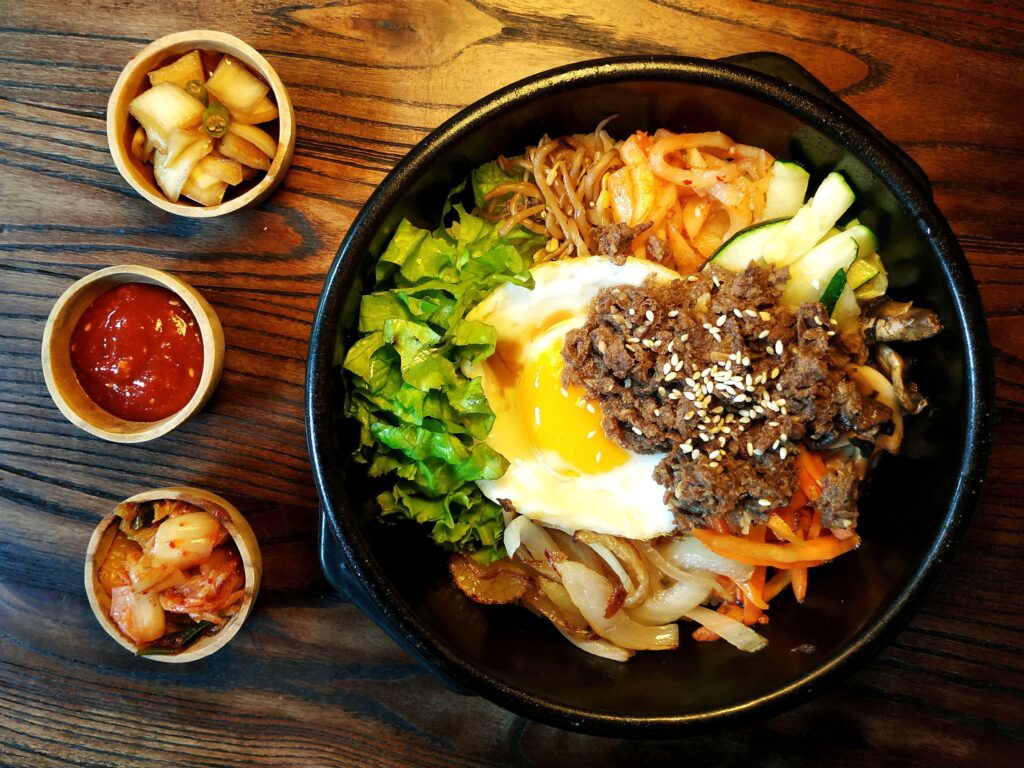
Let’s explore bibimbap, one of Korea’s most beloved traditional dishes, which is enjoyed by Koreans and foreigners alike without exception. Bibimbap is a healthy and delicious dish made by mixing various ingredients with gochujang (red chili paste), representing an iconic symbol of Korean culinary culture. In this article, we will delve into the ingredients, types, and eating methods of bibimbap in detail.
1. Ingredients of Bibimbap:
Bibimbap is made with a variety of ingredients, primarily including rice, meat, vegetables, egg, and seasoning. While white rice is commonly used, other types such as brown rice or glutinous rice may also be used. Meat options range from beef, pork, to chicken, while vegetables like carrots, cucumbers, spinach, and bean sprouts are commonly added. Eggs are typically served partially cooked, and the seasoning consists of gochujang and gochugaru (red chili pepper flakes).
2. Types of Bibimbap:
There are various types of bibimbap available. Representative examples include “yukhoe bibimbap” (beef tartare bibimbap), “Dolsot Bibimbap” (A dish of rice cooked in a hot stone pot, allowing it to stay warm for a long time while enjoying the meal), and “traditional bibimbap”. Each type offers its own unique taste and characteristics. Yukhoe bibimbap is known for its refreshing and tender flavor with fresh beef tartare and vegetables, while hwe dubbap offers a fresh taste with raw fish and vegetables. Traditional bibimbap, on the other hand, combines various ingredients and gochujang to create a rich and deep flavor profile.
3. Eating Bibimbap:
When eating bibimbap, it’s essential to mix the ingredients thoroughly before consuming. Then, enjoy each bite, savoring the balanced flavors and aromas. Adjusting the taste with additional gochujang or other condiments is common practice. Some restaurants may offer alternatives like soy sauce or salt and pepper for seasoning, providing diverse flavor experiences.
Bibimbap is not only a delicious dish but also a nutritious one, offering a blend of flavors and health benefits. Its unique taste and variety make it appealing even to Indians experiencing Korean cuisine for the first time. For Indians eager to explore Korea’s diverse culinary culture, bibimbap is an excellent choice.
